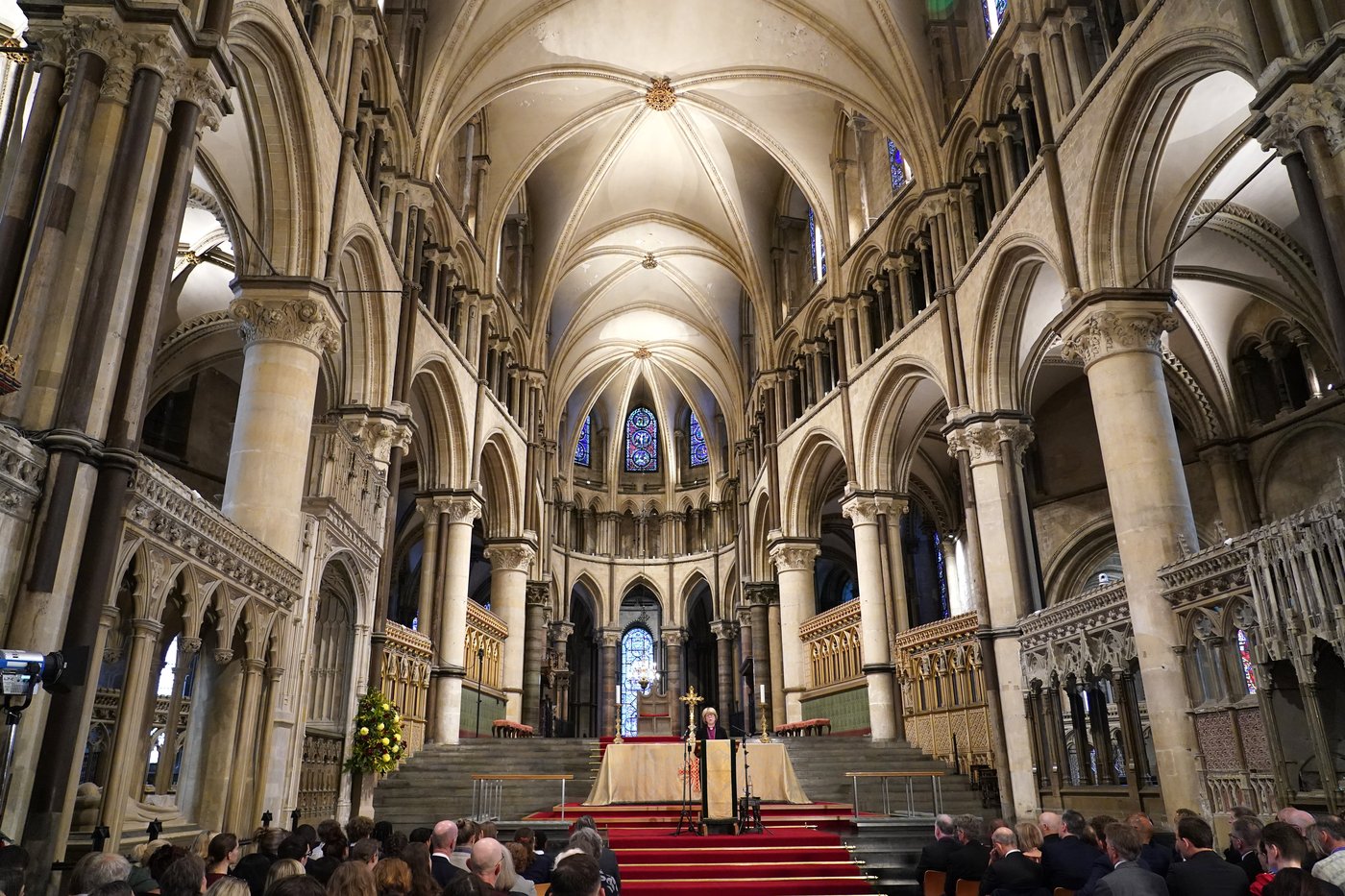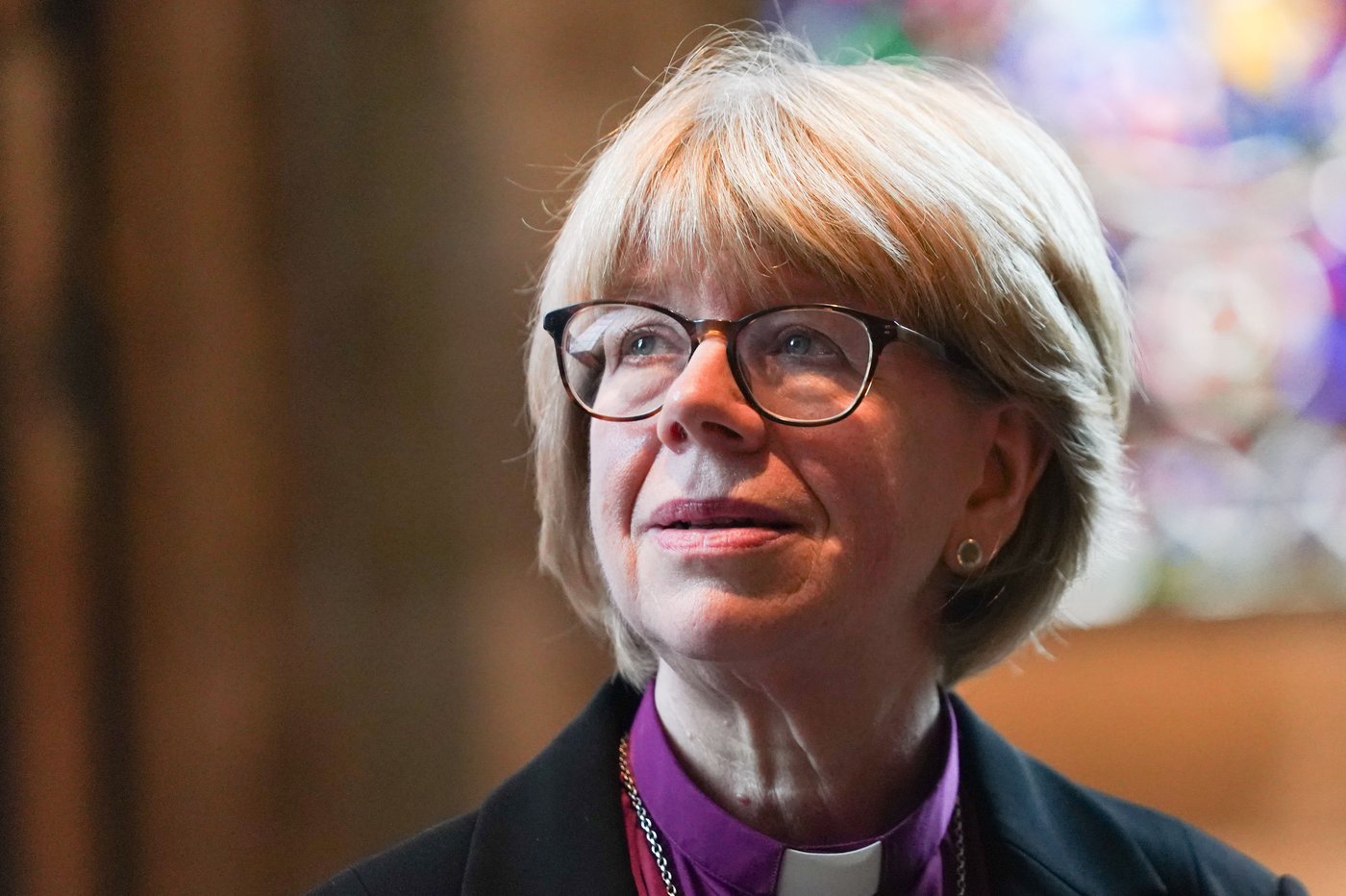Elevate your local knowledge
Sign up for the iNFOnews newsletter today!

After decades of fierce controversies over sexuality and theology in the Anglican Communion, some leaders of a conservative coalition say it’s time to make a final break from what has long been one of the world’s largest Protestant church families.
That would make a slow-growing Anglican schism complete — if it happens.
But how many church provinces go along with the rupture remains to be seen. Some of the communion’s largest and fastest-growing churches in Africa belong to the conservative group that announced the break — known as the Global Anglican Future Conference, or Gafcon. But several member churches have been silent on the plan, weeks after it was announced.
Gafcon’s announcement came shortly after the October appointment of Bishop Sarah Mullally as the first woman to be archbishop of Canterbury, the Anglican Communion’s symbolic spiritual leader. Many in England and other Western countries hailed this as a historic breaking of a stained-glass ceiling.
But leaders of Gafcon criticized the appointment, as did some other bishops. Some said only men should be bishops, but their bigger criticism was her support for some LGBTQ+-inclusive policies — the key fault line in the communion.
Within days of Mullally’s appointment, Gafcon issued another declaration. It completely rejected the Anglican Communion as it has been structured historically. That structure has included a set of governing and advisory bodies and recognition of the archbishop of Canterbury as a symbolic “first among equals” among leaders of self-governing national churches, known as provinces. Since provinces are self-governing, the archbishop’s authority is highly limited.
The ”future has arrived,” said Gafcon’s chairman, Archbishop Laurent Mbanda of Rwanda, in its October statement. “We declare that the Anglican Communion will be reordered.” His statement decried churches it said had violated a 1998 statement by the communion’s bishops, opposing same-sex unions and describing “homosexual practice as incompatible with Scripture.”
Gafcon proclaimed what it calls a restructured “Global Anglican Communion.” It would be overseen by a new council of top national bishops, or primates. Whoever is elected chairman would be “first among equals.”
Uncertainty as to how large a breakaway could be
The question remains is: How many Gafcon members are actually going along with this plan, and how many want to remain in the existing Anglican Communion as a loyal opposition?
Primates of Africa’s two largest national provinces, Nigeria and Uganda, have joined their Rwandan counterpart in endorsing the measure, according to Bishop Paul Donison, Gafcon’s general secretary. So have smaller churches ranging from Myanmar to the Americas.
Nigeria Archbishop Henry Ndukuba confirmed his church’s endorsement of Gafcon’s plan. He called Mullally’s stances on same-sex issues “devastating.”
“This election is a further confirmation that the global Anglican world could no longer accept the leadership of the Church of England and that of the Archbishop of Canterbury,” he said in a statement.
Donison said Gafcon’s statement was drafted at a meeting in Australia, which included several church leaders on Zoom, though several others did not participate. Gafcon’s statement said its bishops would “confer and celebrate” restructuring at their next major meeting, scheduled this March in Nigeria.
Among those signing on to the Gafcon statement is the conservative Anglican Church in North America, formed in a break from the more liberal U.S. and Canadian churches.
The Gafcon move will “mark a decisive moment in the life of the Anglican family,” said ACNA Archbishop Stephen Wood, in a statement issued shortly before he took a leave of absence amid allegations of sexual and other misconduct, which he denies.
The Anglican primate of Congo is committed to maintaining Anglican ties.
In a statement, Archbishop Georges Titre Ande decried liberal trends in some churches but added: “The Anglican Church of Congo has no intention to leave the Anglican Communion, rather to keep working … to reform, heal and revitalise the Anglican Communion without leaving it.”
Tensions have been worsening for many years
The communion consists of churches descended from the Church of England. Anglicanism, with its unique mix of Protestant theology and Catholic-like ritual and sacraments, spread worldwide via colonial and missionary activity. It is especially vibrant in Africa. The London-based communion estimates it has about 85 million members across 165 countries.
Simmering tensions in Anglicanism exploded after 2003, when the U.S. Episcopal Church ordained its first of several openly gay bishops. Conservatives formed Gafcon and other structures. Large provinces such as Uganda’s and Nigeria’s have largely stopped participating in traditional Anglican structures.
The Anglican Communion itself is weighing a proposed new structuring that would de-emphasize Canterbury and share leadership roles more widely.
The proposals “won’t solve all the differences in the Anglican Communion, but they do seek to provide a structure within which people of deeply different convictions can remain in good conscience within that Communion,” said Bishop Graham Tomlin, chair of the committee that drafted the proposals. The plan will be aired before an advisory council next year.
Presiding Bishop Sean Rowe of the Episcopal Church said the latest Gafcon statement was “more of the same” from a subgroup that has largely disengaged from the Anglican Communion.
“There’s a pretty clear agenda here, which I don’t think has very much to do with the church,” he said. “I’m really interested in being in relationship with people who want to continue our relationships across the communion.”
Vocal unhappiness over a female leader
Even if the communion remains intact, its profound divisions surfaced with Mullally’s appointment.
Mullally has affirmed the Church of England’s current definition of church marriage as between a man and a woman, but she supported a plan for blessings of same-sex couples and has acknowledged “the harm that we have done” as a church to LGBTQ+ people.
Homosexuality remains taboo in many African countries, in some cases criminalized under colonial-era laws or newer legislation. Uganda enacted legislation in 2023 prescribing the death penalty for some homosexual offenses.
Stephen Kaziimba, Uganda’s archbishop, lamented Mullally’s “support and advocacy for unbiblical positions on sexuality.”
Her appointment widened “the tear in the fabric of the Anglican Communion,” Kaziimba added in a letter to Anglicans.
Bishop Lukas Katenda, leader of the conservative Reformed Evangelical Anglican Church of Namibia, a Gafcon-aligned faction independent of the Church of England, dismissed Mullally’s appointment as “a joke.”
“She is not a person to look up to for evangelism, for mission, for proclamation of the gospel of Jesus Christ, for winning souls or to call people for repentance,” Katenda told The Namibian newspaper.
When the Anglican Diocese of Upper Shire in Malawi shared the Gafcon statement criticizing the appointment of Mullally on its Facebook page, it attracted approving comments from followers who said “Amen.” However, the diocese also reposted a statement from the general secretary of the Anglican Communion, urging it to stay together.
In Accra, Ghana, Patrick Okaijah-Bortier, parish priest of St. Andrew Anglican Church, said many clergy in his country were unhappy about Mullally, notably because of her support for same-sex blessings.
“It is worrying,” he said. “If she pushes this agenda, she may end up losing almost all of us.”
Another cleric in Accra, Georgina Naa Anyema Collison of the St. Joseph the Worker Anglican Church, said she supported Mullally’s appointment because “I’m a female” yet opposed her position on same-sex unions.
But in South Africa, where same-sex marriages are legal, Archbishop Thabo Makgoba of Cape Town, primate of the Anglican Church of Southern Africa, offered “warm congratulations” to Mullally. In another statement, Makgoba’s office said he is focused on interfaith peacemaking efforts and “has neither the time nor any interest in engaging with these internal Anglican differences.”
___
Contributors include Farai Mutsaka in Harare, Zimbabwe; Dyepkazah Shibayan in Abuja, Nigeria; and Edward Acquah in Accra, Ghana.
___
Associated Press religion coverage receives support through the AP’s collaboration with The Conversation US, with funding from Lilly Endowment Inc. The AP is solely responsible for this content.

Want to share your thoughts, add context, or connect with others in your community?
You must be logged in to post a comment.